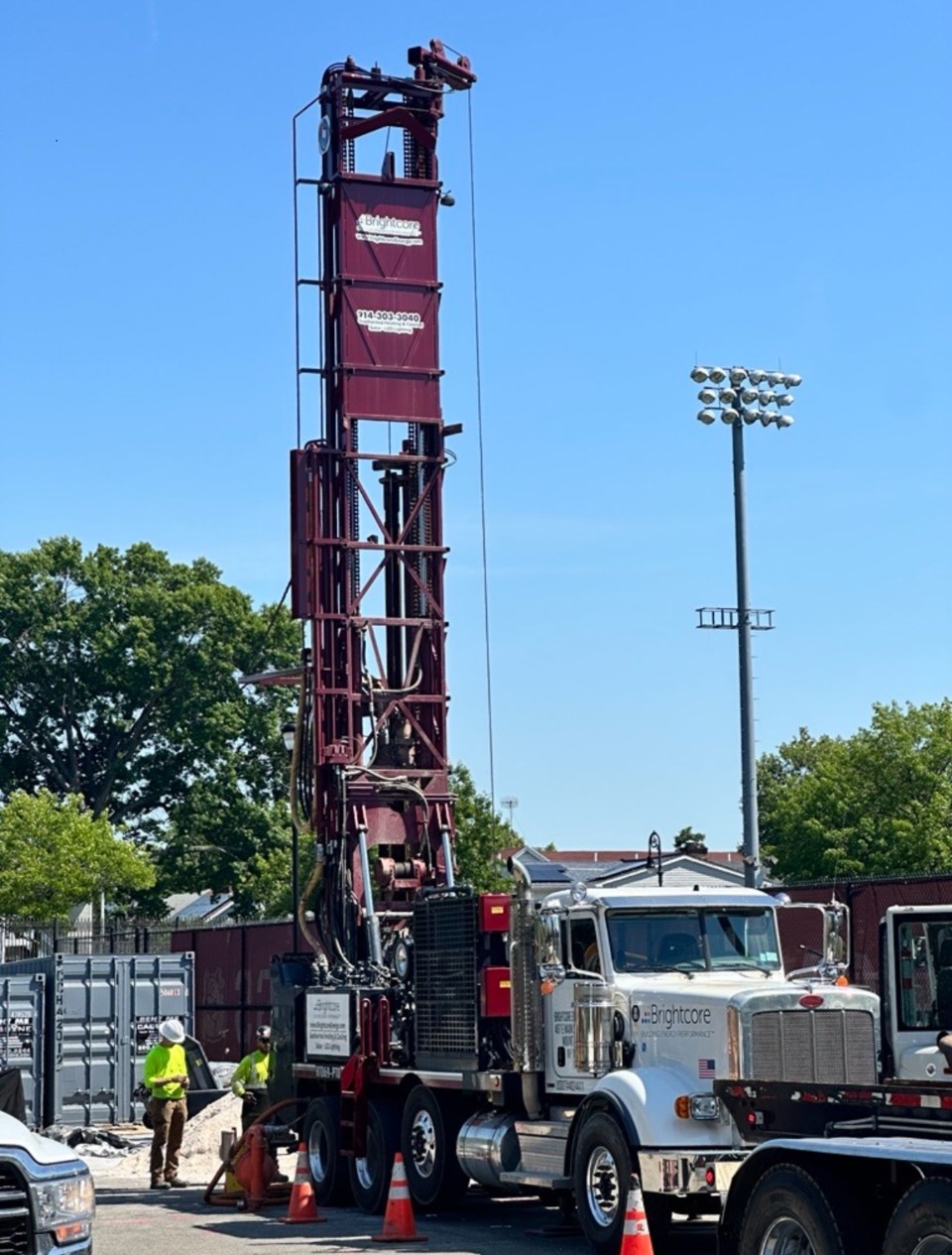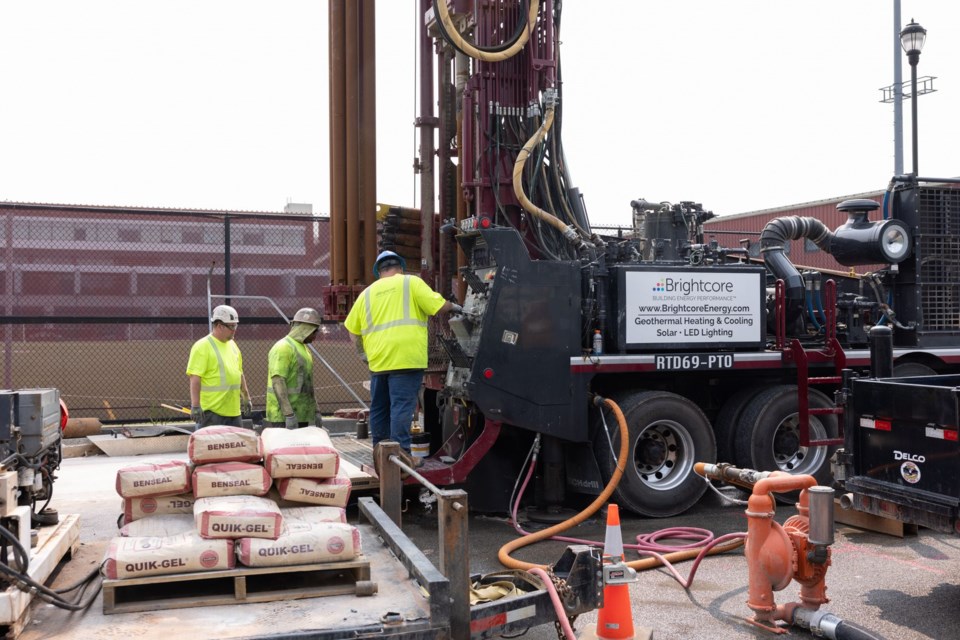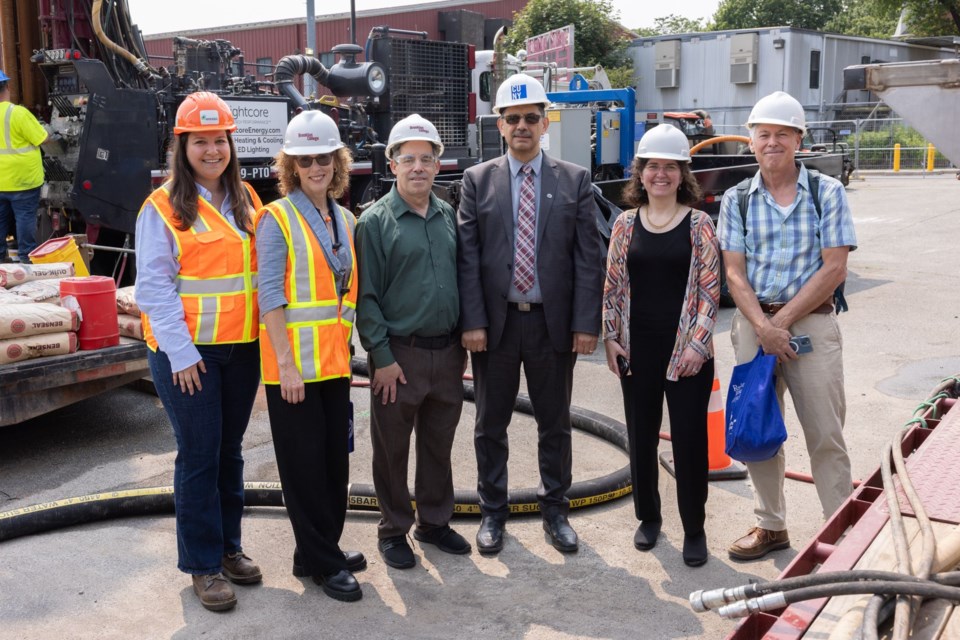Brooklyn College began drilling a geothermal test well on June 4 as part of a campus-wide push to eliminate fossil fuel use and transition to cleaner, more sustainable energy.
The project is part of a broader initiative by the City University of New York (CUNY) to reduce carbon emissions across its campuses.
“Participating in Governor Hochul’s Decarbonization Leadership Program is a pivotal step in CUNY’s commitment to environmental stewardship on our campuses,” said Mohamed Attalla, vice chancellor of Facilities Planning, Construction and Management.

In partnership with the New York Power Authority (NYPA) through its Decarbonization Leadership Program, crews drilled a 500-foot test borehole on June 4 on the west side of campus. The test aims to assess the site's potential for geothermal energy. The program helps NYPA identify energy and emissions profiles while developing decarbonization plans for the state’s highest-emitting facilities.
Brooklyn College is the first CUNY institution to conduct geothermal testing of this kind. Hunter College and City College are also creating decarbonization plans through the same program.
The West End Building, a central hub for academic and student activities, is at the core of the initiative. A $10 million award from the New York State Bond Act will fund the building’s complete conversion to a geothermal heating and cooling system, offering a carbon-free alternative to traditional energy sources.

With existing hydronic infrastructure in place, the building is well-suited for geothermal integration. The system is expected to enhance indoor comfort, boost energy efficiency, and eliminate fossil fuel dependence. The 20,000-square-foot facility houses a computer lab, the undergraduate film department, multimedia classrooms, student clubs and the campus testing center.




